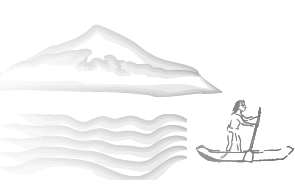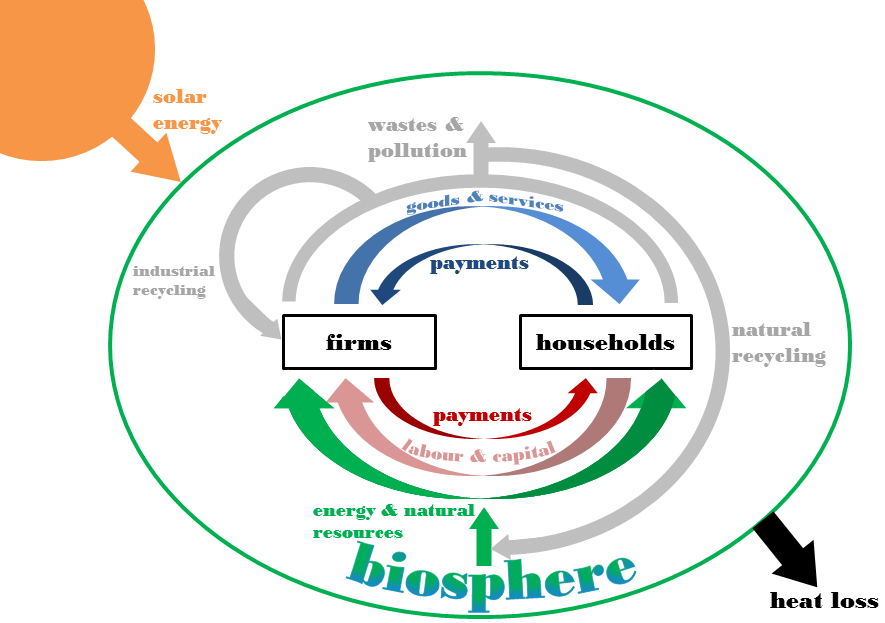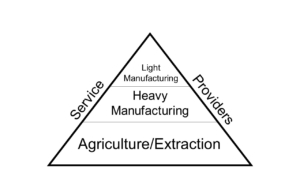Middle School Lesson Plans
On this page you will find five lesson plans designed for middle school learning. For background knowledge, students will learn about the history of economic and ecological growth. They will also consider ways to model the current flow of energy and matter in the economy. These concepts pave way for an understanding of how to determine the right size of the economy and how our governing and economic institutions can operate accordingly.
Transformation and Balance
Grades 6-8 Lesson 1
(Word document version)
12,000 years ago, about 3 million humans inhabited the earth. If you lived during this period, it is likely that your community consisted of about 30 people. Your house would be a small shelter built from grass, stone, and animal hide. Over time, humans learned to transform the environment, as well as their own ways of living in community. Since then, we have seen a rapid period of expansion and technological progress.
Economic Cycles and Nature
Grades 6-8 Lesson 2
(Word document version)
Economics education often begins with analysis of the circular flow of money. Money links labor, firms, production, and consumption. However, the circular flow chart ignores the dependence of economic activity on nature.
The Economic Food Chain
Grades 6-8 Lesson 3
(Word document version)
In an ecosystem, the “trophic” structure refers to the flow of energy and nutrition. It is similar to the concept of a foodchain. As the sun shines down, plants do the hard work of converting solar energy into stored energy and material. Economic transformations mimic and align with this basic trophic structure.
Energy and the Economy
Grades 6-8 Lesson 4
(Word document version)
Energy, agriculture, industrial ecology, communities, and transportation all require informed design. Our future leaders will be designing institutions, infrastructure, and business models which operate efficiently within social and ecological constraints.
Biodiversity and Economic Growth
Grades 6-8 Lesson 5
(Word document version)
Species are going extinct faster than any time in the last 66 million years, and this is not good for the ecosystem because ecosystems depend on biodiversity. This is not good for our economies, because our economies depend on ecosystems.




